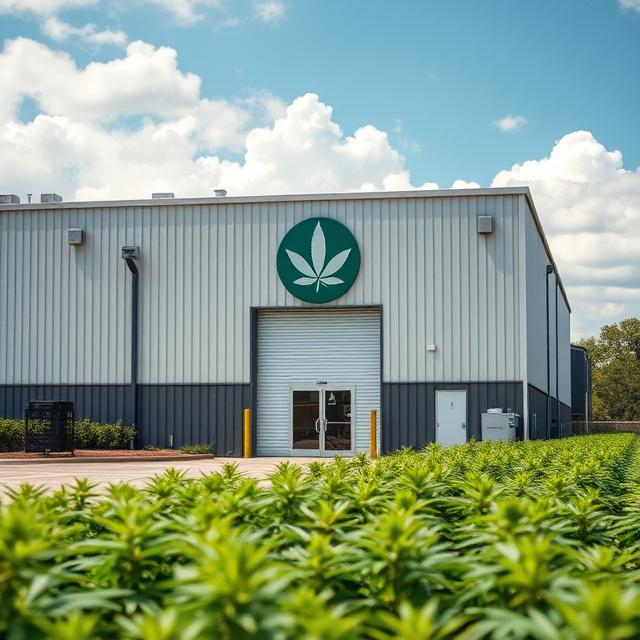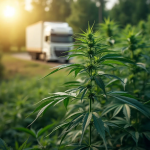Strategies for Hemp Companies to Enhance Efficiency in 2025

As the hemp industry continues to evolve, companies must focus on operational efficiency to remain competitive and sustainable in 2025. By adopting innovative strategies and technologies, hemp businesses can streamline operations, reduce costs and improve product quality. Here are key actions that hemp companies can take to enhance their efficiency this year.
Operational Efficiency Improvements for Hemp Companies
- Invest in Automation and Technology: Hemp companies should prioritize the integration of automation and advanced technologies into their operations. Investing in automated systems for planting, harvesting and processing can significantly improve efficiency. Utilizing drones equipped with sensors for crop monitoring allows farmers to assess plant health and optimize resource allocation. Additionally, automated processing equipment can enhance the extraction of CBD and other cannabinoids, reducing labor costs and increasing throughput.
- Leverage Data-Driven Decision Making: In 2025, hemp companies can benefit from harnessing big data and analytics to inform their decisions. By collecting and analyzing data on soil health, weather patterns, and market trends, businesses can optimize cultivation practices and supply chain management. Implementing predictive analytics will help forecast demand, manage inventory and minimize waste, ultimately leading to more efficient operations.
- Adopt Sustainable Practices: Sustainability should be a core focus for hemp companies this year. By adopting eco-friendly practices, such as organic farming methods, water conservation techniques and renewable energy sources, companies can reduce their environmental impact and appeal to conscious consumers. These efforts not only improve operational efficiency but also enhance brand reputation and customer loyalty.
- Transition to Eco-Friendly Packaging: To meet the growing consumer demand for sustainable products, hemp companies should prioritize eco-friendly packaging solutions. Transitioning to biodegradable, compostable or recyclable materials can significantly reduce plastic waste and align with the values of environmentally conscious consumers. Exploring innovative packaging designs that minimize material use while ensuring product safety will further enhance sustainability efforts and market differentiation.
- Pursue Vertical Integration: Hemp companies can streamline operations and reduce costs by pursuing vertical integration. By controlling multiple stages of the supply chain, from cultivation to processing and distribution, businesses can improve efficiency and decrease reliance on third-party suppliers. This approach allows for better quality control, faster turnaround times and increased profitability.
- Foster Collaboration and Partnerships: In 2025, hemp companies should actively seek collaboration with hemp broker and technology providers. Forming strategic partnerships enables businesses to share resources, knowledge and best practices.
- Invest in Employee Training and Development: Recognizing that a skilled workforce is essential for operational efficiency, hemp companies should invest in employee training and development programs. Providing employees with the latest knowledge and skills in hemp cultivation, processing and compliance can boost productivity and reduce errors. Continuous training fosters a culture of innovation, encouraging employees to contribute ideas for operational improvements.
- Optimize Hemp Supply Chain Management: Efficient supply chain management is critical for hemp companies in 2025. Businesses should adopt advanced logistics solutions, such as blockchain technology, to enhance transparency and traceability in their supply chains. This not only improves operational efficiency but also builds consumer trust by ensuring product authenticity. Exploring local sourcing options can further reduce transportation costs and support local economies.
- Utilize Hemp Farming Contracts: Hemp seed companies, hemp fiber companies and CBD extractors can optimize their supply chain management by incorporating hemp farming forward contracts into their annual supply of hemp seeds, hemp fiber and CBD hemp biomass. These contracts help stabilize supply and foster stronger relationships between farmers and processors, ensuring a reliable market for high-quality hemp products.
- Focus on Research and Development: Investing in research and development is crucial for driving innovation in the hemp industry. Companies should prioritize developing new technologies, cultivation techniques and hemp varieties that enhance yield and quality. Collaborating with research institutions and universities can help hemp businesses stay at the forefront of industry advancements, ensuring they remain competitive in a rapidly changing hemp market.
The Future of Operational Efficiency Improvements in the Hemp Industry
As the hemp industry matures, operational efficiency will be vital for companies aiming to thrive in a competitive landscape. By focusing on automation, data-driven decision-making, sustainable practices, eco-friendly packaging, vertical integration, collaboration, employee development, supply chain optimization, innovative contracting and research, hemp businesses in 2025 can position themselves for long-term success. These operational efficiency improvement strategies not only enhance profitability but also contribute to a more sustainable and responsible hemp industry.


